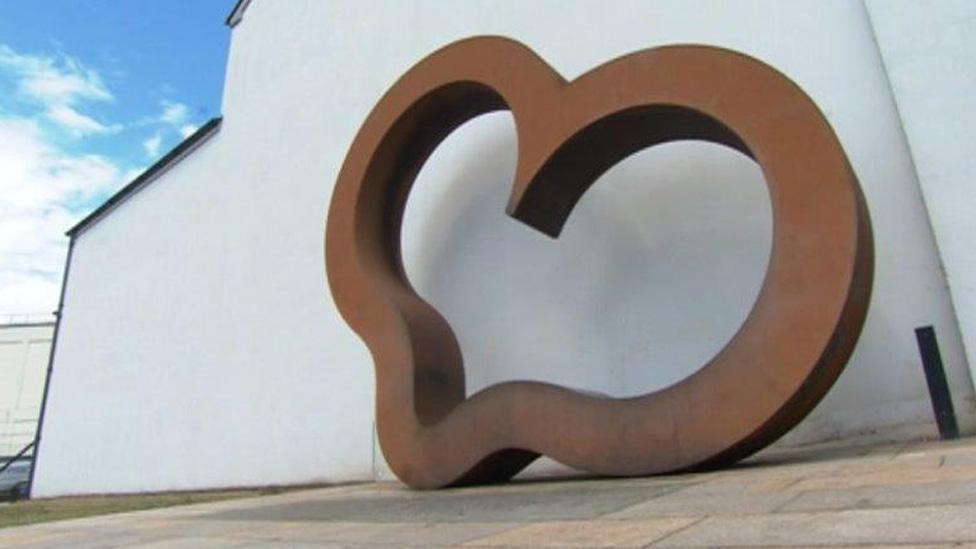Deeply split Merthyr council seeks government help
- Published
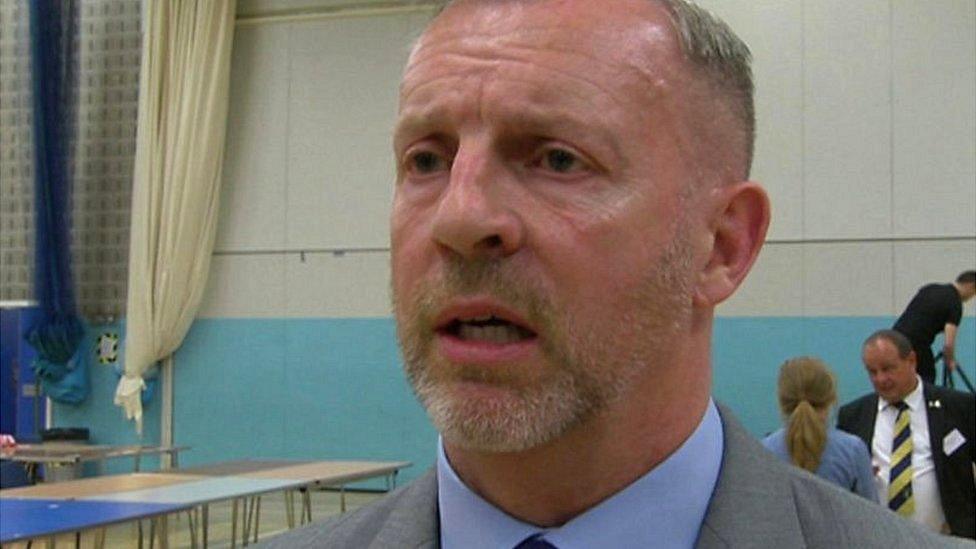
Kevin O'Neill said the council faced "enormous pressure" on social services
A trouble-shooter is being sent into Merthyr Tydfil council to tackle a breakdown in relations at the top of the authority and financial problems.
The local government minister said the situation is "very serious and needs to be addressed as a matter of urgency".
Julie James was responding to an appeal by the council to send in an "honest broker" between Merthyr's leadership, opposition and top officials.
Council leader Kevin O'Neill called the current position "fractious".
Mr O'Neill said independent-controlled Merthyr needed "support with member interaction given the current fractious position and financial challenge".
In a statement to AMs, Ms James said an external advisor would look at "key challenges" facing Merthyr and what help it needs.
In addition, "an experienced political leader will work with Merthyr Tydfil council members to develop and strengthen working relationships across all political groups and between members and officers", she said.
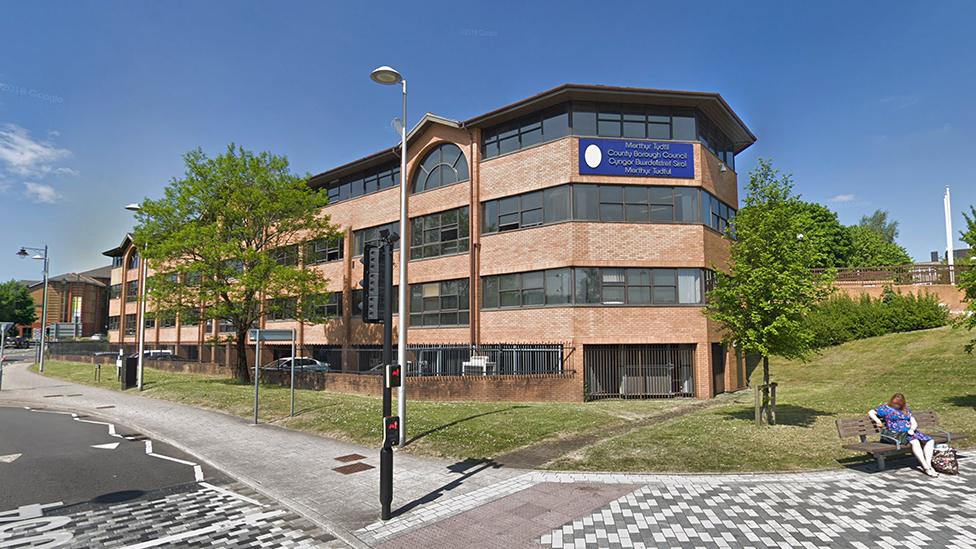
Merthyr Tydfil council is the smallest local authority in Wales
In a letter to Ms James on 3 June, Mr O'Neill said the council faced "enormous pressure" to deliver social services to vulnerable people and asked for expert help on how to manage finances.
He also said it was difficult to make changes "because of our political balance".
The council is led by independents, but with 16 of the 33 councillors they do not have overall control.
Labour is the biggest opposition group.
Mr O'Neill also refers to concerns raised by the Wales Audit Office (WAO), the public spending watchdog.
Council managers have met the WAO to seek advice after it warned the authority not to keep raiding its reserves.
Merthyr used £560,000 of its reserves last year to help plug a deficit - most of which was due to pressure on social services, in particular the budget for children in care.
The council expects to have a deficit of £8m in 2020, growing to £15m by 2022.

Analysis by Arwyn Jones, BBC Wales political correspondent
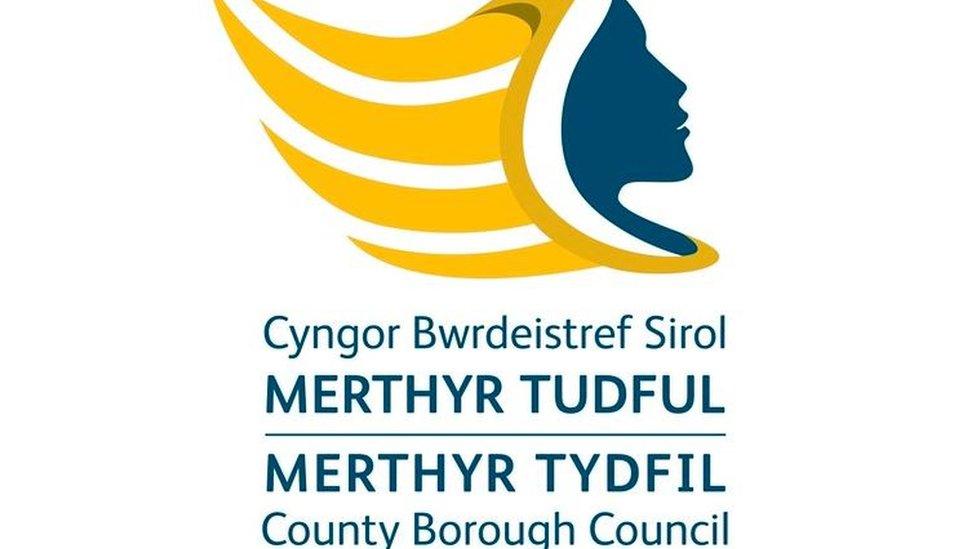
It seems that what has happened in Merthyr is that the pressures of cuts to its budgets have run into a failure of councillors to work together.
There are 33 councillors at the authority, but the independent group who run the administration only has 16 of them. This means they have had to rely on support from opposition members to pass budgets and make decisions on how to spend money.
Two months ago, Wales' spending watchdog raised serious concerns that the council was dipping too far into its reserves to pay for the higher costs of social services for children, saying it was not "viable" to continue as it had done.
But now the ruling group and the opposition cannot agree on what to do next, so the Welsh Government will appoint, basically, a peace envoy to see how a deal can be reached.
I cannot think of a time when another council has asked for help in this way, even though minority administrations are hardly rare in local government; that's how 10 of the 22 in Wales were run after the last elections, two years ago.

Mr O'Neill issued his own statement on Thursday, responding to Ms James's, in which he said advice and guidance had been requested when his council and others "across the country are feeling the financial pressures more than ever".
"For clarity, this support is not financial and we are not in a position of "special measures", he said. "Welsh Government has offered to make available two relevant professionals to work with our senior leadership team.
"This will ensure that the council has sound financial capacity, robust governance and leadership in place to address the challenges that we face.
"It is important that we do not bury our heads in the sand and as the leader of this council I urge all elected members and officers to adopt a united front approach to ensure that this organisation is sustainable moving forward."
- Published4 March 2019
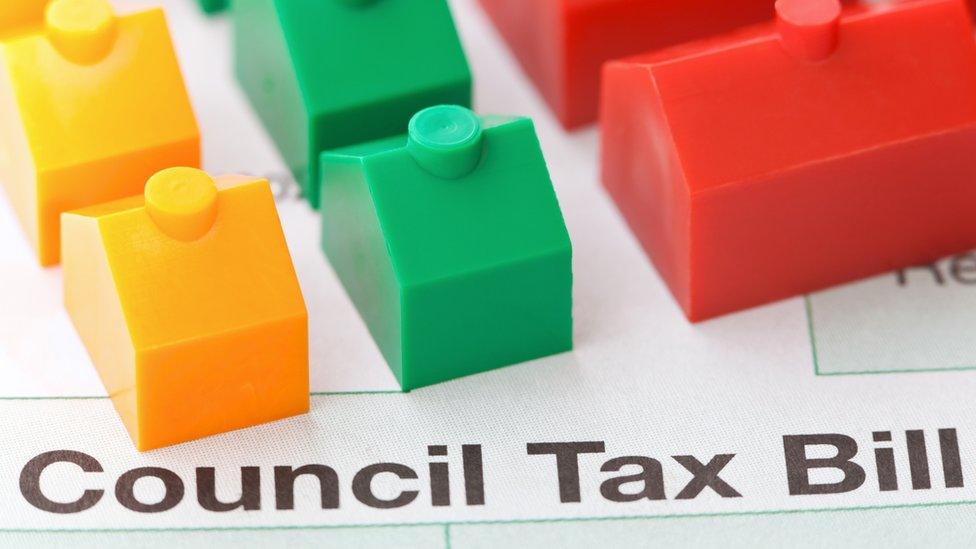
- Published5 May 2017
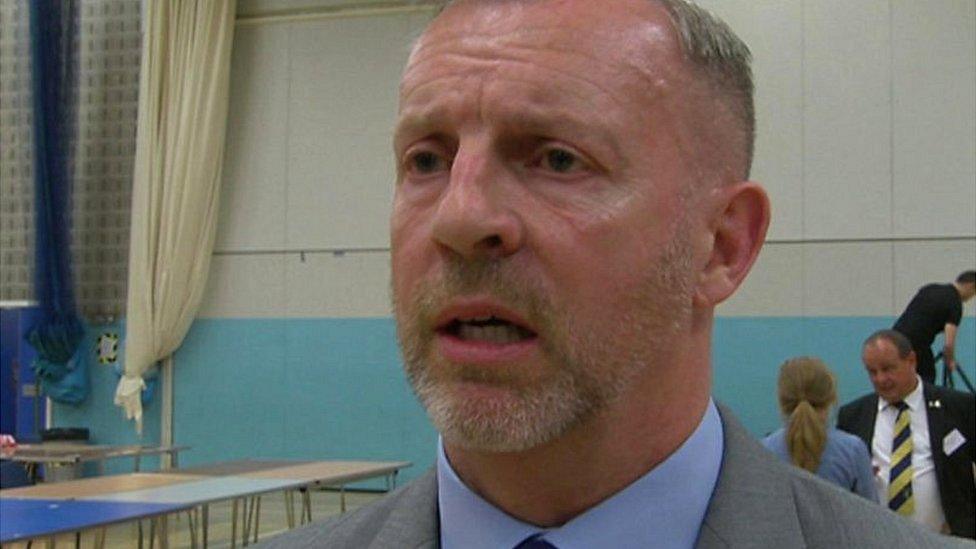
- Published6 August 2018
